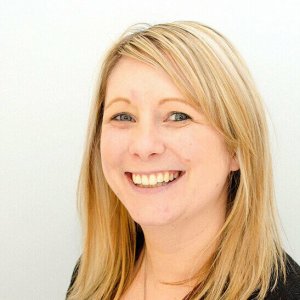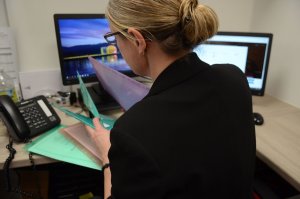The past few years have been an exciting time for curriculum development. Ensuring that we teach the statutory EYFS Framework and National Curriculum may seem a simple process, yet the more we learn of successful curriculums, the more we understand that it is much more complex. In addition to the statutory elements, we know there are:
- Explicit curriculum: Planned content for all subjects that will be taught and the knowledge and skills that the school expects successful students to acquire.
- Implicit curriculum: lessons that arise from the culture of the school and the behaviours, attitudes, and expectations that characterize that culture, the unintended curriculum.
- Excluded curriculum: topics or perspectives that are specifically excluded from the curriculum.
- Hidden curriculum: things which students learn, because of the way in which the work of the school is planned and organized but which are not in themselves overtly included in the planning or even in the consciousness of those responsible for the school arrangements (Kelly, 2009).
This blog will look at how we can take our intended curriculum and enhance it further with books to inspire, engage and motivate children to make links in knowledge and skills across the curriculum.
Where are you with your curriculum development?
Before we consider the magic, awe, and wonder that texts can bring to a school curriculum, we need to reflect on where we currently are with our school curriculum development. As Mary Myatt is often heard saying “the Curriculum is a never-ending story,” and, whilst some chapters are longer than others, we need to ensure that we regularly review our curriculum story – building upon it to ensure that we are providing the best possible offer to our children.
To review our curriculum we must consider:
- What is the school’s current vision and rationale?
- What is the current research that underpins the curriculum?
- What strengths and areas for development are within your whole-school offer?
- Are there strengths and areas for development within each subject?
- What are the strengths and developments of the curriculum at each phase/year group level?
- How will you plan your curriculum changes?
- When will you monitor and evaluate changes?
Within the above you may also want to think about other parts of curriculum planning such as: progression, key concepts, breadth and depth, substantive and disciplinary knowledge, assessment, wellbeing, character education and the science of learning! Not much to consider… right?!
The previous curriculum blogs may give you a bit more of a starting point around this. Primarily, it is important to remember that the design and implementation of a curriculum must be led from the heart; it is a celebration of everything wonderful that there is to learn, delivered in an empathetic and appropriate way to allow for diversity and rich opportunities.
Why choose a book led curriculum?
With all the above to consider, surely adding books to our curriculum will make it even more complicated for our children? Actually, the answer is no – if books are carefully chosen to support the curriculum then children can make links and connections between knowledge and skills far more easily. A book led curriculum is not just an extension of teaching reading skills or comprehension (Have a look at our approach to teaching reading skills). A book led curriculum can help:
- Stimulate curiosity and spark imagination
- Develop children’s background knowledge and cultural capital
- Enhance children’s vocabulary (check out this resource)
- Foster deeper, more transferable learning
- Encourage discussion of big ideas and themes
- Provide models for writing
- Make reading a true focus point for your curriculum
- Help children to fall in love with books and reading
A book led curriculum works because it adds an element of fun and excitement to the curriculum – but also because stories stick. The reason that stories stick is because links can be made to previous learning or situations that are familiar to each other. Cognitive science tells us that new knowledge needs strong foundations and it also needs to link with other knowledge. Stories can help with this and much more!
How to develop a book led curriculum?
A well-designed book-led curriculum can inspire our children to ask questions and learn new knowledge, skills, and vocabulary. The books chosen can engage and deepen understanding across many aspects of a curriculum. For this to be effective we need to ensure we follow strategic steps to implement this. For example:
- Consider your curriculum vision and values (Intent)
- Develop your Curriculum (to be progressive with core concepts)
- Ensure outcomes are decided and match progression
- Choose your anchor text for each unit/term/subject
- Choose your supplementary texts
- Plan specific learning opportunities to help achieve outcomes (This sometimes may come before Step 4)
- Implement the planned curriculum
- Monitor and Review the impact (thinking back to the questions in section above on curriculum development)
What to consider when choosing texts?
Books, like mirrors, help reflect what we observe and know about the world we live in. It is powerful to read or listen to a story about someone like you. However, books, like windows, also allow us to view and understand lives that are different from our own. Through having a book led curriculum we can ensure we provide our children with books as mirrors and books as windows.
But there are so many books out there, so where do we start? Suggestions of how to start choosing books to enhance the curriculum are below, but they are by no means exclusive:
1. Ask Some of us just absolutely love books but even the biggest bookaholic in the world will not know of every book out there.
Discussing books with those who love to read within school is a good starting point. This could be extended to book recommendation time in each staff meeting. For example, “I have just read Spinderella by Julia Donaldson – not only would it be a great alternative for EYFS and Y1 children who look at fairytales, it is also a brilliant number story.” Or, “I read The Midnight Guardians by Ross Montgomery and I instantly thought of your Y6 unit on WW2. This would be great for history, but it would work well for English too.”
Librarians will always help you out – the School Library Association would be wonderful for this, or if you are purchasing books then Peters will be able to give good advice, as they read every book that comes into their shop and are experts at sourcing books for different reasons: be that HiLo books, graphic novels, books that will stretch younger readers or simply to match your curriculum plan (along with 30% discount for One Education customers!)
2. Read We know there are many positives in reading for pleasure but when it comes to reading for a purpose, such as finding the perfect book to link in with your science unit on light, we need to think carefully about which books to try out! Try joining a local book club that focuses on children’s books, such as this one run by Simply Books or those run by OU/UKLA. Alternatively, you may want to set up your own so that you can focus on books that fit in with your curriculum.
3. Variety Variety is key. We need to think about the range of cultures, backgrounds and experiences portrayed across the texts that we choose (Reflecting realities research would start us off on this!).
We also need to think about the levels of reading difficulty – consider if the book will be read by the teacher to the children, or by the children themselves (I’d be tempted to get a mixture for your book led curriculum).
If the content of a subject is quite difficult for children, you may also want to think of the amazing picture books that can bring your curriculum to life. Plus, don’t forget to include nonfiction books and poetry within the range of books that you choose to enhance your curriculum!
4. Vocabulary The amount of vocabulary within each text and how this links to the overall curriculum plan is also important. Looking at books and reading the blurb will give us an insight into what the text is about, but it is only by reading the text that will indicate as to whether it will help to extend children’s vocabulary. One trick that may help with this is reading an extract from Lovereading4kids, which should give an indication into the type of language and vocabulary that the book uses.
5. Enjoyment Enjoyment is the ultimate reward for reading and, whilst we want our children to use these books to create links in knowledge and skills across the curriculum, there is no harm in choosing books that the children will be excited to pick up. With such a wealth of amazing books on the market we can ensure that the books are everything we want our children to experience when reading: magical, motivating, inspiring, engaging and fun!
There is so much more to consider when choosing books for your curriculum, but we hope the above gives you a chance to get started. Our Education Consultants are passionate about reading and have worked with many schools to design their own curriculum. If you need further support with this or simply want to discuss what books might work for your curriculum, then do not hesitate to get in touch with jo.gray@oneeducation.co.uk
What Next?
There is a lot to think about with developing a book led curriculum. This blog is only the starting point of ideas and concepts to explore. Karl Duke, the inspirational Headteacher of a school in Lincolnshire, has worked with his team to develop a reading-inspired curriculum to ensure children are exposed to quality picture books and novels throughout their journey in primary school. His successful book led curriculum has been implemented for several years at his school, leading to incredible learning opportunities!
Karl will be joining me on 26th May 2022 to explore the magic that a book led curriculum can bring to children, staff, and the whole school community.
















